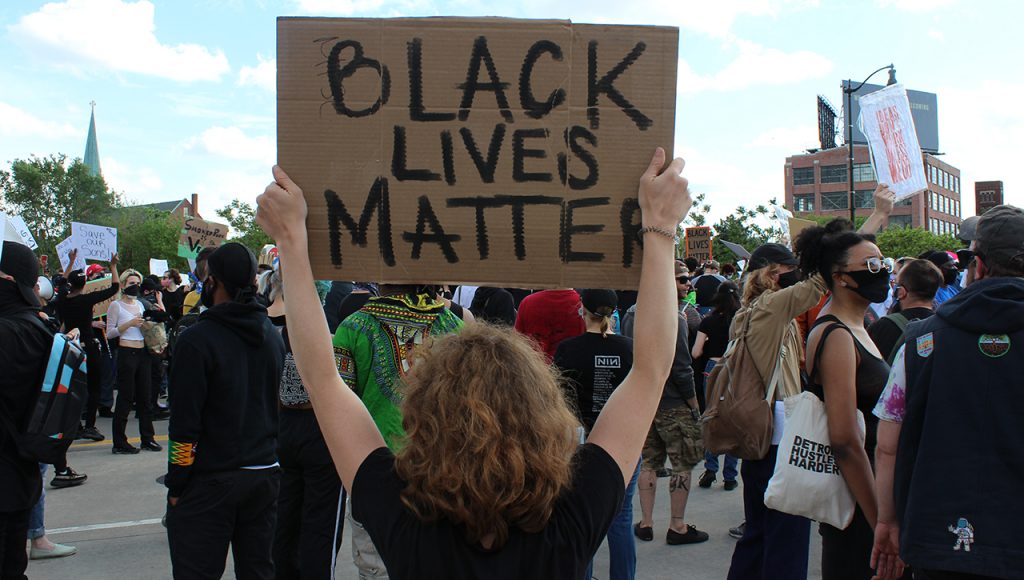Pro Sports Protests Buck Tradition of “Shut Up and Play”
A major shift has taken place in pro sports in the four years that have passed since Colin Kaepernick famously knelt during the national anthem, and many hope that team protests will encourage fans to take a stand against racism as well.

America is in the midst of perhaps the most tumultuous reckoning since the Civil Rights era.
The novel coronavirus pandemic has laid bare the the deep inequities working against communities of color. Black Lives Matters protestors have shone a light on how Black Americans endure a disproportionate amount of violence at the hands of law enforcement.
“They wanted to make a stand and bring attention to [the shooting of Jacob Blake] and really take America by the neck and shake some sense into it.” — Kevin B. Blackistone, ESPN
Last week we saw the revival of a movement among professional athletes who are using their platforms to protest and bring awareness to the gravity of this violence against African Americans throughout the country. Thinking back just four years ago to the treatment received by NFL quarterback Colin Kaepernick, who famously knelt during the national anthem to signify his stance on this issue, the collective consciousness seems to have changed in 2020.
Instead of continuing to perpetuate a damaging “shut up and play” ethos among pro athletes, we are seeing a major shift toward some powerful solidarity. Last Wednesday, pro sports leagues including the NBA, the WNBA, Major League Soccer and Baseball all said ‘enough’ and their games have now come to a halt.
Listen: Pro Sports Are shifting their stance on demonstrating against racism. Will fans follow suit?
Guest
Kevin B. Blackistone is an ESPN panelist and visiting professor at the Philip Merrill College of Journalism at the University of Maryland. He also writes sports commentary for the Washington Post. He says the Milwaukee Bucks’ decision not to play in their NBA playoff game last Wednesday sparked protests across major league sports.
Protests “began to ripple through the NBA, Major League Soccer, Major League Baseball, the WNBA. [The Milwaukee Bucks] were fed up that once again in their home state of Wisconsin there had been an incident of extreme police brutality against a Black man, this time being Jacob Blake. They wanted to make a stand and bring attention to it and really take America by the neck and shake some sense into it,” he says.
“When you [protest] as a group, it makes the message stronger.”
There’s been a shift in professional sports surrounding political demonstration since Kaepernick took a knee during the national anthem in 2016. He drew criticism from players, coaches, and fans across the league, but only four years later, entire teams are demonstrating in even more disruptive ways by postponing entire games. Blackistone says that he believes this change stems from more teams being willing to take a stand together, rather than as individual team members.
“One thing that is different in this moment, when you [protest] as a group, you have some comfort in that and it makes the message stronger, I think,” Blackistone says.
Many were surprised that Major League Baseball postponed three games and many players chose to sit out Wednesday night, considering the MLB’s rocky history of racism and segregation within the league. Although there are many Black players in the MLB, many are not American. Blackistone says this doesn’t deter them from standing up against racism in America.
“There is a consciousness among players of color in Major League Baseball, and of course Major League Baseball has been trying to reckon with its own racial insensitivities, whitewashing the entire segregationist history of baseball that made Jackie Robinson a story in the first place,” he says. “Robinson could have been a Colin Kaepernick, but he’s celebrated for not doing so and taking the abuse that this country threw at him.”
Although teams and leagues are more open to standing up against racism now, many fans are still critical of the demonstrations and are calling for politics to be left out of sports. Blackistone says he hopes these protests by players will serve as a model to fans.
“This issue has kind of pulled back the curtain on [fans’] real feelings about these players, and there’s a sense of ownership, there’s a sense that, ‘this is a game, you play it to entertain us, how dare you interject your real feelings into our moment of distraction?’ That’s long been a case, but it’s maybe never been laid more bare than it is right now,” he says. “I would like to think that seeing athletes mature politically and democratically should be a lesson for the rest of this country.”
This article was written by Detroit Today student producer Ali Audet.
Trusted, accurate, up-to-date
WDET is here to keep you informed on essential information, news and resources related to COVID-19.
This is a stressful, insecure time for many. So it’s more important than ever for you, our listeners and readers, who are able to donate to keep supporting WDET’s mission. Please make a gift today.
